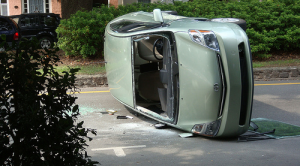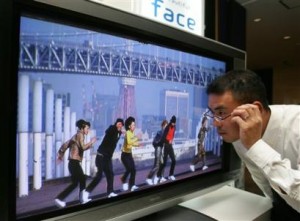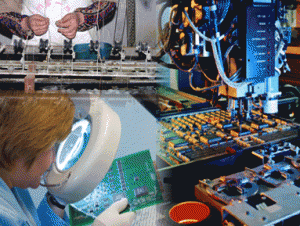Anyone old enough will remember the day, twenty years ago today, that Nelson Mandela walked to freedom, blinking in the sunshine, after 27 years in jail, much of that time on Robben Island.
Following his release Mandela exhibited exemplary leadership leading his people to a relatively peaceful future in a democratic South Africa.
It was an incredible achievement given the depth of hostility which existed between black and white.
We should also acknowledge the role played by F.W de Klerk who paved the way for democracy and mitigated the hostility and understandable fears of the Afrikaans resistance.
Both Leaders demonstrated that when we sit down to negotiate a peace we do so with our enemies not our friends but that it is possible to achieve peace against seemingly impossible odds.
chris@projectsguru.co.uk

 The news today that Toyota plans on recalling several hundred Prius due to brake problems follows hot on the heels of rumours last week that 19 people had died due to faulty accellerator pedals on Toyota vehicles in the U.S.A alone.
The news today that Toyota plans on recalling several hundred Prius due to brake problems follows hot on the heels of rumours last week that 19 people had died due to faulty accellerator pedals on Toyota vehicles in the U.S.A alone. Project Managers don’t do the work of the project; that is the function of the team members. That doesn’t mean that Project Managers don’t work !
Project Managers don’t do the work of the project; that is the function of the team members. That doesn’t mean that Project Managers don’t work ! When working with teams it is essential to take time out on a regular basis to review project progress. This meeting should be scheduled on a weekly or bi-weekly basis and should involve all members of the team so that everyone feels included. There should be a regular agenda and the meeting should take no longer than one hour. The meeting will be chaired by the PM and suitable items for discussion will be:-
When working with teams it is essential to take time out on a regular basis to review project progress. This meeting should be scheduled on a weekly or bi-weekly basis and should involve all members of the team so that everyone feels included. There should be a regular agenda and the meeting should take no longer than one hour. The meeting will be chaired by the PM and suitable items for discussion will be:-

 We dont want to eat meat and two veg, we want a spicy Samosa and a glass of Japanese Beer followed by real Italian Ice Cream.
We dont want to eat meat and two veg, we want a spicy Samosa and a glass of Japanese Beer followed by real Italian Ice Cream.


 Sometimes, despite best efforts at Risk Management, we drift off plan. In the worst case this means we won’t be able to meet our customer commitments.
Sometimes, despite best efforts at Risk Management, we drift off plan. In the worst case this means we won’t be able to meet our customer commitments.
 As Project Manager you will have primary contact with the customer but should you take team members with you on customer visits ?
As Project Manager you will have primary contact with the customer but should you take team members with you on customer visits ?